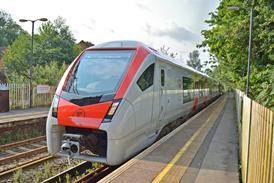Mixed train daily
Sir - The successful Amsterdam - Milano OverNight Express (RG 5.01 p339) shows that inspiration, innovation and dedication can produce the high-quality service that just-in-time freight customers demand but seldom receive from rail. In this interesting experiment, the modern equivalent of the old-style ’mixed’ passenger and freight train, all parties appear to benefit - the freight from passenger speeds and reliable timetabling, while passengers are offered a premium service that might otherwise be uneconomic. It will be interesting to see whether NS Internationaal can find support for expansion of the service.
ONE raises the wider question why more perishable goods cannot be moved by rail at passenger speeds, or actually in passenger trains. Could this not be a useful source of additional revenue for passenger operators? Amtrak has developed a significant income stream from its expanding mail and express traffic, carried on the back of its loss-making long-distance passenger trains.
In Britain, mail and newspapers were traditionally moved in overnight trains which also included sleeping and seated accommodation; now all newspapers and most mail goes by road or air, and overnight passenger services have been decimated. Now the remaining dedicated mail trains are reportedly under threat because of their chronic unreliability. This is crazy.
Such time-sensitive commodities should be natural candidates for passenger train service, but as so often happens poor performance and high cost hands the business to the road hauliers. Dutch-style innovation may seem unlikely on Britain’s fragmented railways, but Motorail has made a tentative comeback on the London-Cornwall route and some supermarkets are successfully moving perishable goods by rail.
Unfortunately the modern trend towards near-exclusive use of multiple-units and fixed-formation trainsets makes a return to mixed operation difficult. On the other hand, France still has many overnight trains that could ensure 12h transits for, say, fruit and vegetables from the Midi to Paris if suitable wagons were available. And with Marseille now just 3h from Paris, how about converting a few older TGV sets to work a new premium service for perishables?
Christophe Boisseau
ParisFrance




















